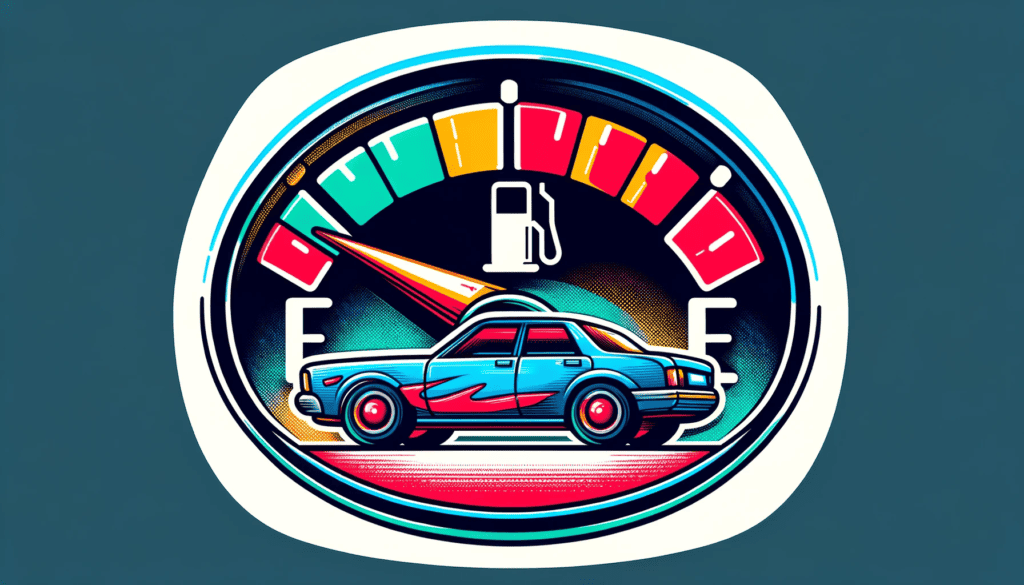
The Risks of Running on Empty
Unexpected Consequences
Running low on gas can lead to a range of unexpected consequences. It’s not just about the inconvenience of stopping more frequently. When your tank is near empty, your vehicle’s fuel pump, which relies on gasoline for cooling and lubrication, works harder. This added stress can lead to premature wear and potential failure, translating into costly repairs.
Fuel Quality Concerns
Another concern is the quality of fuel your engine receives. Sediments and debris typically settle at the bottom of your gas tank. When the fuel level is low, these impurities are more likely to be drawn into the fuel line, potentially clogging filters and affecting the engine’s performance.
Safety Hazards
Lastly, the safety risks cannot be overlooked. Running out of gas not only leaves you stranded but also puts you in potentially dangerous situations, especially if you’re on a busy road or in an unfamiliar area.
Psychological Impacts
Stress and Anxiety
The habit of waiting until the last minute to refuel can be a source of unnecessary stress and anxiety. The constant worry about finding a gas station in time or the fear of being stranded can take a toll on your mental well-being.
Impact on Decision Making
Being low on fuel can also impact your decision-making abilities. In a rush to find the nearest gas station, you might make hurried and unsafe driving decisions, like cutting across lanes or speeding.
Financial Implications
Higher Costs in the Long Run
Contrary to the belief that waiting might save money, it can actually lead to higher costs. The strain on the fuel pump and potential engine issues due to impurities can result in expensive repairs.
Fuel Efficiency Myths
There’s a common myth that driving on a low tank improves fuel efficiency. However, this is a misconception. In fact, most vehicles operate more efficiently with a half-full tank.
Environmental Considerations
Increased Emissions
Driving with a low fuel level can increase your car’s emissions. An inefficiently running engine due to fuel impurities or a failing fuel pump emits more pollutants.
Resource Management
Frequent refueling also means a more consistent demand for fuel, aiding in better resource management and potentially reducing the strain on fuel supply chains.
Safety Best Practices
Regular Refueling Routine
Establishing a regular refueling routine ensures you’re never caught off guard. Aim to refuel when your tank reaches the quarter-full mark.
Monitoring Fuel Levels
Modern vehicles often come with advanced warning systems. Pay attention to these indicators and plan your refueling stops accordingly.
Health and Wellness
Reducing Stress
Maintaining a healthy fuel level is not just about your car’s health but also about reducing your own stress. It brings peace of mind, knowing you’re prepared for any journey.
Promoting Responsible Habits
Adopting a responsible approach to fuel management is part of a broader lifestyle of mindfulness and preparedness, positively impacting other areas of your life.
Economic Sense
Long-term Savings
Investing in preventive maintenance, like regular refueling, saves money in the long term by avoiding costly repairs and inefficiencies.
Valuing Your Time
Consider the value of your time. Getting stranded or dealing with car issues due to low fuel levels can be time-consuming and disruptive.
Community and Social Impact
Setting an Example
By practicing responsible fuel management, you set a positive example for others, promoting a culture of preparedness and responsibility.
Contributing to Public Safety
Keeping your vehicle in optimal running condition contributes to overall road safety, benefiting not just you but the entire driving community.
Personal Growth and Development
Learning Discipline
Regular refueling requires discipline, a valuable trait that can be applied to other aspects of personal and professional life.
Building Resilience
Adopting a proactive approach to car maintenance, including fuel management, builds resilience and a sense of self-reliance.
Things to Consider
- The Value of Preparedness: Embracing a proactive approach to vehicle maintenance, including fuel management, reflects a broader lifestyle of preparedness.
- Environmental Responsibility: Being mindful of fuel levels contributes to more efficient vehicle operation and reduced emissions.
- Safety First: Regular refueling is a simple yet effective way to ensure personal safety and contribute to public road safety.






Leave a Reply